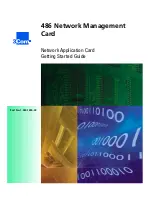
I P A D D R E S S I N G
E X P L A I N E D
S TAT I C A N D D Y N A M I C I P A D D R E S S E S ,
W H AT ’ S T H E D I F F E R E N C E ?
2. Run one or more email servers directly on your site that require
external access from the Internet
3. Run one or more FTP servers directly on your site that require
external access from the Internet
4. Run one or more DNS servers directly on your site that require
external access from the Internet
5. Run any other service or apps that require external access from
the Internet. Some licensed applications use a static IP address
for licensing purposes.
You require or allow incoming video or audio services or run an on-site
IPPBX. However, in some cases audio and/or video client applications
(including some IPPBXs) will require you to connect, or register, with an
external server which will forward incoming traffic. When using these
types of clients/applications you may not need a static IP address.
Please check the details with us.
IP addresses on your router
A single dynamic public IP address will automatically be allocated to your
Business Broadband service. Dynamic IP addresses can change if you
reset your gateway device or switch it off and on again. IP addressing
within your network is then managed by the DHCP (Dynamic Host Control
Program) server built into the gateway. Each connected device will be
dynamically allocated an IP address when it’s connected to one of your
networks. Once allocated a private IP address, each of your devices can
communicate with other devices and services on your network and the
public Internet via the Hitron Network Address Translation (NAT) function.
We can supply static IP addressing but you need to request this at the
time of ordering. The available options are 1, 5 or 13 usable public IP
addresses. Multiple static IP addresses will be allocated as a sub-net of
sequential addresses. Once allocated, IP address sub-nets cannot be
extended. In the case that a larger allocation is required the old sub-net
must be replaced with a new one. This will require reconfiguration of the
gateway and the connected devices.
There are two types of IP addresses – static and dynamic
Static IP addresses are the same every time you connect to the Internet.
They’re used by all major websites, email services, FTP services and so on.
Dynamic IP addresses may change each time you connect to the Internet
and every time you send a message over the Internet.
When would I need dynamic IP addresses?
You may require dynamic IP addresses if you use our broadband services
for any of the following:
1. Browsing the Internet
2. Sending and receiving emails via an off-site mail server (the normal
method and typically using your ISPs mail server) or a typically web
based mail service such as Gmail, Hotmail, Yahoo etc
3. Downloading or uploading files (using FTP or HTTP)
4. Instant messaging services or chat services
5. Running services such as web or FTP servers that ONLY require access
from your local area network (single site) or perhaps within a multi-site
corporate network, and DO NOT require or allow access from the Internet.
When would I need a static IP address?
You may require one or more static IP addresses if you’re using
our broadband service for any of the following:
1. Run one or more web servers directly on your site that require
external access from the Internet
31
H I T R O N C G N V 4



































